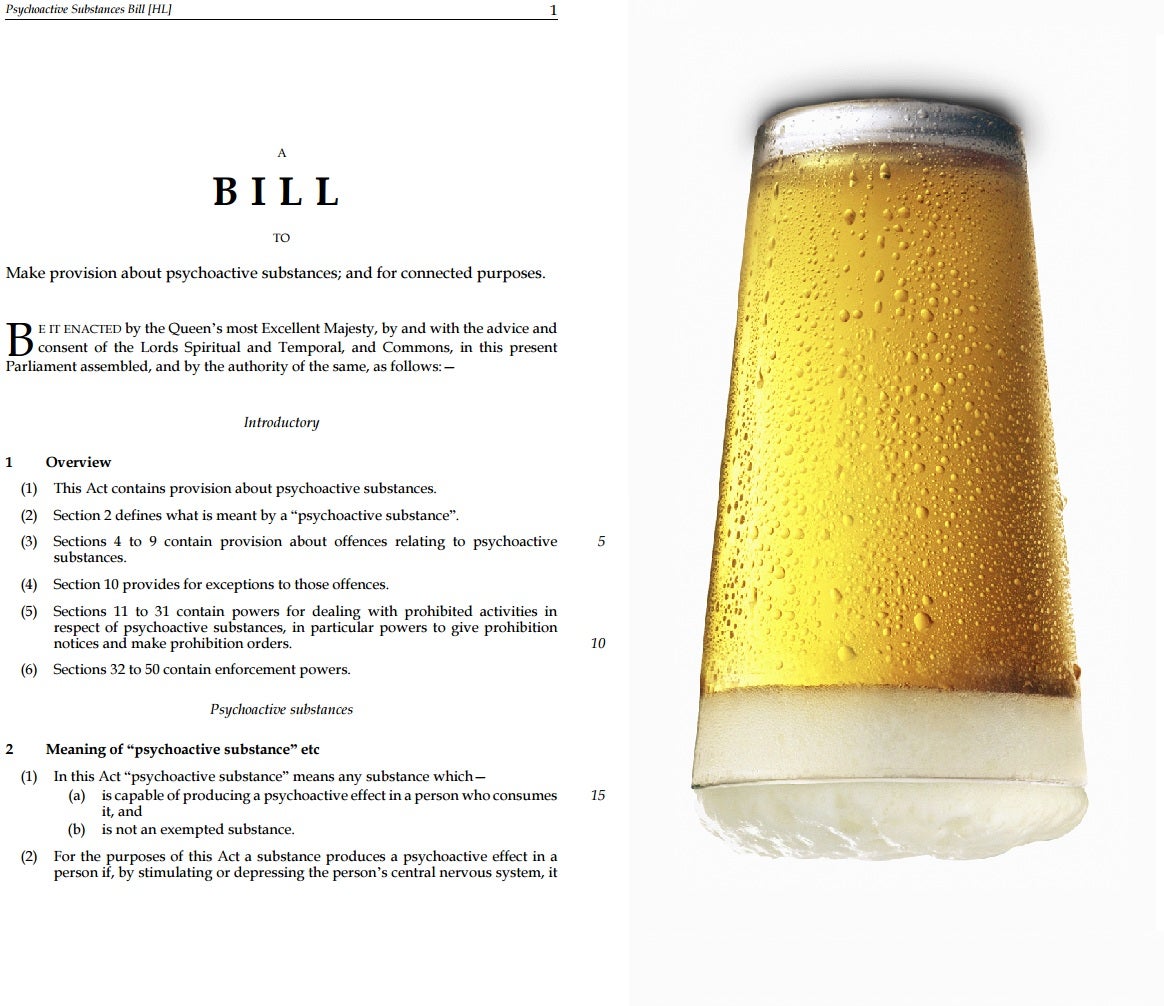The Government's new definition of alcohol encapsulates the hypocrisy of its drugs policy
It contains alcohol but not psychoactive substances, apparently

The newly published Psychoactive Substances Bill is 52-pages long and riddled with contradictions, technically banning everything and leaving us to muddle our way through what is and isn't a legal high.
Politics.co.uk has been doing good work pointing out that its definition of a psychoactive substance as being anything "capable of producing a psychoactive effect in a person who consumes it" could be used to argue that air fresheners, incense and even flowers are now arguably outlawed, given that we inhale their vapours and enjoy a resultant pleasant feeling.
The bill's reasoning for alcohol being an 'exempted substance' is pretty bizarre too though, as per Schedule 1 Section 6 on p.34:
Yes, it's obviously trying to indicate any alcohol that isn't laced with some other psychoactive substance, but the way parts a) and b) contradict each other is just too perfect.
It could be used to argue that alcohol should too be banned, given that is very much psychoactive (often debilitatingly so), but more usefully it should highlight the Government's completely arbitrary approach to drugs.
As Obama put it recently, it's high time we "follow the science not the ideology" regarding drugs.
Join our commenting forum
Join thought-provoking conversations, follow other Independent readers and see their replies
0Comments